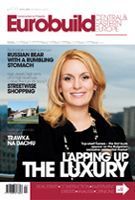Earnings are on the rise in Sofia and Varna, and now people who are looking for new homes have higher expectations. The word ‘luxury’ has a number of meanings on the Bulgarian real estate market, but the first European-standard residential estates are already in the pipeline Mladen PetrovThe Bulgarian property market is buzzing with news of new investments. Yet a quick study of what is on offer reveals that, apart from the many projects for the more popular lower to mid-range and improved standard flats, there are very few real deluxe apartments available. Marketing campaigns for the ‘home of your dreams’ are keeping the market on its toes, but the promised luxury is usually just an advertising gimmick.Luxury Bulgarian style Any attempt to determine whether a house or apartment falls into the deluxe category is quite impossible, if only because this market segment is only just emerging. What is called a luxury apartment is frequently classified as just ‘superior’ standard




























































